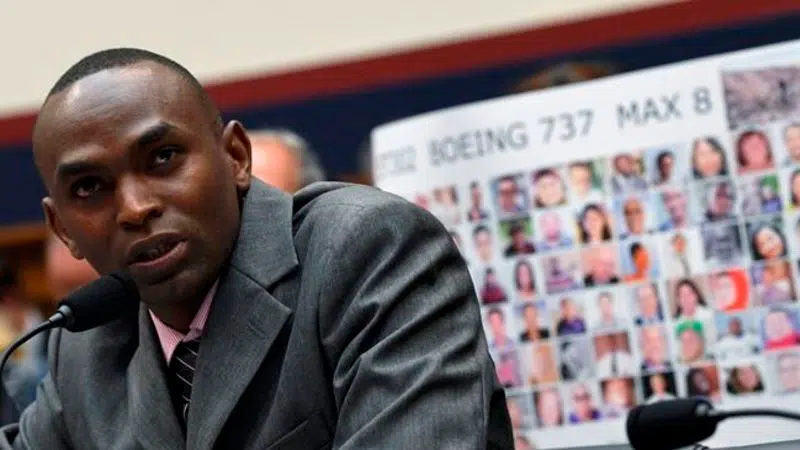
Toronto man who lost family in Ethiopian plane crash testifies at US Congress
A Toronto man who lost his family in the crash of a Boeing 737 Max jet in Ethiopia called Wednesday for a stronger aircraft approval process in the U.S. and said more people would die if that type of plane was allowed to fly again.
Paul Njoroge was testifying before a U.S. congressional panel examining aviation safety after two deadly crashes involving Boeing’s bestselling plane. He said the Max — which is currently grounded — has a dangerous design flaw that Boeing tried to hide.
“If Boeing’s wrongful conduct continues, another plane will dive to the ground,” he told the panel.
The Nairobi-bound Ethiopian Airlines plane crashed just minutes after takeoff on March 10 near Addis Ababa, killing 157 people on board — eighteen of the victims were Canadian citizens and several others were foreign nationals living in Canada.


